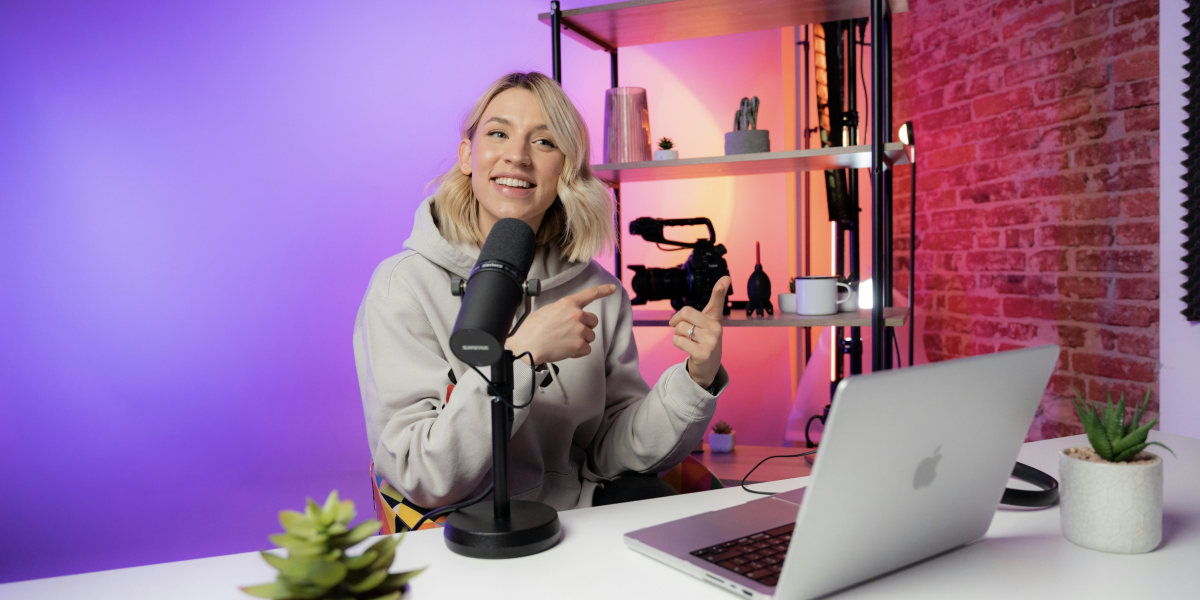Representation in media plays a vital role in shaping the aspirations and creative directions of young people. As society becomes more diverse, the demand for accurate, inclusive, and authentic portrayals in media has grown significantly. Whether it’s through film, television, books, or social media, young creators are increasingly seeing themselves reflected in ways that inspire and empower them. This shift is not just a change in representation; it’s an opportunity for young creators to imagine new possibilities for their work and their futures.
Read also: What Does it Really Take to Make a Living on Social Media?
How Does Representation in Media Affect Young Creators?
The impact of representation in media on young creators cannot be overstated. When individuals see characters, stories, and creators who look like them or share their experiences, it can ignite a sense of validation and spark a desire to pursue their creative passions. This is especially important for young people from marginalized groups, who may have previously felt excluded or misrepresented in mainstream media. Seeing a more accurate reflection of their lives, struggles, and identities can open doors to creativity they never considered before.
Representation also introduces young creators to a broader spectrum of possibilities. When media showcases diverse voices and experiences, it encourages emerging artists to think outside the box, experiment, and push creative boundaries. It’s a powerful catalyst for the next generation of creators to tell their own stories, creating content that resonates with others who may feel similarly underrepresented or unheard.
Why Is Accurate Representation So Important for Emerging Talent?

Photo Credit: Unsplash.com
Accurate representation goes beyond just seeing people who look like the audience. It involves portraying characters and stories in a nuanced, authentic way that reflects the complexities of real life. When young creators see characters that are multi-dimensional and reflect their true selves, it provides a roadmap for how to create content that is rich, diverse, and relatable.
Without proper representation, young people can feel isolated or disconnected from the broader creative community. They may struggle to find inspiration or a sense of belonging, unsure of where their ideas fit within the media landscape. Conversely, when media reflects an inclusive spectrum of experiences, it not only empowers young creators but also builds a supportive community where everyone feels seen and heard.
How Are Young Creators Using Media to Showcase Their Own Voices?
With the rise of social media platforms and content creation tools, young creators have more opportunities than ever before to showcase their work. Representation in mainstream media has spurred a new generation of creative individuals to share their voices and stories on platforms like YouTube, TikTok, and Instagram. These platforms allow creators to bypass traditional media gatekeepers, giving them full control over the content they produce and how they present it.
Social media has become a powerful tool for young creators to break into the entertainment and creative industries. They can now craft content that reflects their unique identities, from sharing personal stories to exploring cultural heritage or tackling social issues. This new wave of creators is not only influenced by what they see in the media but is also actively shaping the media landscape with their own representations.
Moreover, these platforms enable young creators to build communities around their work, gaining followers and engagement from others who feel a connection to their content. The ability to influence and be influenced by others creates a dynamic and ever-evolving creative ecosystem where diverse voices are heard and appreciated.
What Are the Benefits of Representation for Young Creators?
Representation in media is more than just a feel-good concept; it has tangible benefits for young creators. First and foremost, it builds confidence. When young people see someone like them achieving success, it shows them that their goals are attainable. This has a profound impact on their self-esteem, motivating them to pursue their creative ambitions without fear of failure or rejection.
Additionally, representation offers a unique opportunity for young creators to explore their own identities. Many young people are in the process of discovering who they are, and seeing diverse representations in the media can help them better understand themselves and the world around them. Whether through a character that reflects their cultural background, gender identity, or personal struggles, media representation serves as a mirror for self-exploration and self-expression.
Representation in media also has the power to influence the content that young creators produce. When exposed to a variety of narratives and storytelling styles, creators can blend these influences into something entirely new. For instance, a young filmmaker might draw inspiration from the way a specific community is portrayed in a film, using that inspiration to tell their own story from a fresh perspective. The ability to draw from a wider range of experiences enables young creators to produce more innovative and thought-provoking content.
How Does Media Representation Shape Creative Aspirations?
For young people aspiring to be artists, writers, actors, or filmmakers, representation in media is often the spark that ignites their interest. Many young creators first discover their love for a particular form of media when they see it reflected in a way that resonates with their own lives. This connection encourages them to explore their creativity and experiment with different forms of expression, whether through visual art, music, writing, or other creative endeavors.
Representation also broadens the horizon for what is possible in a career. Previously, young people may have assumed that only certain groups of individuals could succeed in the creative industries, given the lack of diverse representation in mainstream media. Now, with greater diversity across genres, young creators feel more empowered to pursue their dreams, knowing there is space for their voices, ideas, and experiences in the industry.
Read also: Social Media and the Mental Toll of Constant Notifications
Key Factors Behind the Influence of Representation in Media on Young Creators:

Photo Credit: Unsplash.com
- Empowerment and Validation: Seeing diverse characters and creators can validate young people’s experiences and inspire confidence in their own creativity.
- Breaking Creative Boundaries: Exposure to a wide range of voices encourages young creators to think outside the box and explore new storytelling methods.
- Identity Exploration: Representation enables young people to reflect on their own identities, sparking deeper self-expression in their work.
- Building a Creative Community: Social media platforms allow young creators to connect, share their work, and find others with similar experiences and interests.
- Inspiring Career Aspirations: Young creators are more likely to pursue careers in creative fields when they see individuals like themselves succeed.
Representation in media has a powerful effect on young creators. By offering a broader range of voices, experiences, and identities, it not only inspires them but also allows them to contribute to the ever-changing world of media. As media continues to evolve, it will undoubtedly empower even more young people to create, tell their stories, and make their voices heard.








